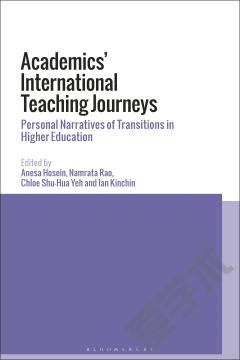People-Centered Approaches Toward the Internationalization of Higher Education
Traditionally, internationalization efforts in higher education have been rooted in (neo)liberal transactional models that restrict or compromise the space for meaningful exchanges of socio-cultural capital. Recently, researchers and practitioners in the international education field have taken issue with programming and practices in education abroad; international student recruitment; and internationalization of the curricula that perpetuate systems of imbalance, fossilize prejudices, adversely impact host communities abroad, and limit student learning to the confines of the Western epistemological traditions. As a result, scholars and practitioners are creating new paradigms for engagement and exchange. People-Centered Approaches Toward the Internationalization of Higher Education is an essential scholarly publication that examines the praxis of internationalization in higher education with empirical research and relevant models of practice that approach the topic critically and responsibly. The book innovates and (re)humanizes internationalization efforts, including education abroad, international recruitment, international scholar and student services, and internationalization of curriculum, by focusing on the people and communities touched, intentionally and unintentionally, by said efforts. It is ideal for higher education faculty, education professionals, academic advisors, academicians, administrators, curriculum designers, researchers, and students.
{{comment.content}}








 京公网安备 11010802027623号
京公网安备 11010802027623号